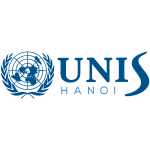Project-based learning (PBL) offers a dynamic and impactful methodology for meeting the changing demands of the education landscape. It engages students in solving complex challenges through simulated projects.
PBL supports learners in developing critical 21st-century skills such as collaboration, problem-solving, and critical thinking to prepare them for life beyond the classroom. For international schools like UNIS Hanoi, PBL is seamlessly aligned with progressive educational frameworks such as the International Baccalaureate (IB), creating a synergy that fosters innovation, curiosity, and global citizenship.
What is Project-Based Learning?
Project based learning is an innovative teaching method that simulates complex real-world challenges through projects and requires students to actively engage to develop proper solutions.
Over weeks or even months, students delve into inquiry, research, and hands-on activities that culminate in a tangible product or presentation. The process fosters critical thinking, creativity, and teamwork, equipping students with essential skills for future challenges.
Project-based learning shifts the focus from traditional, teacher-centred instruction to student-led exploration and creation. In a PBL environment, students tackle complex questions or problems, working individually or in teams to research, ideate, and present solutions. These projects aim to provide a holistic learning experience combined with other subjects like technology, art, science, and social studies.

Key features of PBL include:
- Real-World Relevance: Projects address authentic challenges, connecting classroom knowledge to practical applications.
- Student Agency: Learners take the lead in their education, choosing topics that resonate with their interests and passions.
- Collaboration and Communication: PBL encourages teamwork and effective communication, essential skills for future workplaces.
- Reflection and Iteration: Students evaluate their work, learn from feedback, and refine their solutions, promoting a growth mindset.
PBL and the International Baccalaureate (IB)
The IB framework, adopted by leading international schools like UNIS Hanoi, aligns naturally with problem-based learning methodology due to emphasising global contexts and inquiry-based learning. The two approaches share common goals of developing well-rounded, critically thinking individuals to help them tackle complex challenges in real world.
- Inquiry-Driven Learning: Both PBL and the IB prioritise curiosity, encouraging students to ask meaningful questions and seek answers through research and experimentation.
- Interdisciplinary Connections: The IB’s holistic approach, as seen in its Theory of Knowledge course, mirrors PBL’s tendency to integrate multiple disciplines into a single project.
- Global Mindset: The IB Learner Profile attributes—such as being reflective, open-minded, and principled—are cultivated through the collaborative and culturally rich experiences that PBL offers.

Phoenix’ Nest: A Model for PBL in Action
At UNIS Hanoi, the Phoenix’ Nest exemplifies the power of PBL in fostering creativity, collaboration, and community engagement. This innovative learning hub empowers students to take ownership of their education by tackling projects that address local and global challenges.
For example:
- Sustainability Projects: Students at the Phoenix’ Nest have worked on initiatives to reduce single-use plastics and promote renewable energy, combining scientific inquiry with a commitment to environmental stewardship.
- Cultural Exploration: Projects celebrating Hanoi’s rich cultural heritage allow students to integrate art, history, and language into meaningful experiences.
- Technological Innovation: Learners have designed apps and tools to support younger students, showcasing the intersection of technology and education.
The Phoenix’ Nest aligns perfectly with the IB’s emphasis on inquiry, reflection, and action, demonstrating how PBL can be seamlessly integrated into an international school curriculum.
Benefits of Project-Based Learning
Project-based learning enhances students’ academic and personal development with various benefits, preparing them for success in school and beyond.
1. Critical Thinking and Problem-Solving
In today’s complex world, students need more than just answers; they need the ability to ask the right questions and evaluate possible solutions with clarity and logic.
- Develop analytical skills and informed decision-making as students approach complex challenges.
- Encourage students to evaluate solutions and think strategically about real-world issues.
2. Enhanced Student Engagement
When students feel that their learning is purposeful and connected to something meaningful, their motivation and involvement naturally deepen.
- Foster enthusiasm and a positive attitude towards education with tangible and meaningful projects.
- Inspire students to explore subjects deeply, promoting curiosity and motivation.
3. Development of 21st-Century Skills
Equipping students with communication, collaboration, and adaptability prepares them not only for future careers but also for life in an increasingly connected world.
- Engage students to nurture teamwork, communication, and time management skills and use technology effectively.
- Help students be ready for the higher demands of the modern interconnected world.
4. Real-World Connections
Learning becomes more impactful when students understand how academic knowledge applies to their lives and communities.
- Link academic concepts to daily experiences to apply classroom knowledge practically.
- Help students see their education’s relevance to their personal and professional lives.
5. Long-Term Retention and Understanding
True understanding is achieved when students can apply what they learn in practical and lasting ways.
- Reinforce learning and ensure better retention of skills and information when students apply knowledges into practical contexts.
- Allow an in-depth understanding when exploring and experimenting with all aspects to address the problems.
6. Social and Emotional Learning (SEL)
Working together on meaningful projects helps students build empathy, strengthen relationships, and better understand themselves.
- Promotes collaboration, empathy, and interpersonal skills through teamwork and group projects.
- Develops self-awareness and resilience by engaging students in reflective practices.
7. Creativity and Curiosity
Encouraging creativity invites students to take initiative, explore possibilities, and discover their passions through open-ended inquiry.
- Motivate students to think outside the box and pursue their interests, giving space for innovation.
- Align projects with students’ passions and curiosities to support meaningful engagement.
8. Lifelong Learning
The most valuable education nurtures curiosity and the confidence to keep exploring long after the classroom experience ends.
- Nurture a mindset of adaptability and continuous self-improvement.
- Promote students’ lifelong learning habit by exploring subjects that resonate with them.
9. Improved Academic and Personal Outcomes
Project-based learning helps students grow academically and personally by giving them meaningful challenges that build both competence and confidence.
- Foster a sense of accomplishment and build confidence as students complete meaningful projects.
- Embed transferable skills to prepare students for future academic pursuits and professional success.
Project-Based Learning combines academic rigour with practical relevance, making it a powerful methodology for fostering holistic student development. When integrated into frameworks like the International Baccalaureate, as exemplified by UNIS Hanoi’s Phoenix’ Nest, PBL becomes a transformative approach to education that empowers learners to thrive in an ever-changing world.
Key Elements of Project-Based Learning
Project based learning includes several core components that ensure meaningful and impactful learning experiences:
- Sustained Inquiry: Students embark on an extended process of questioning, researching, and applying knowledge to solve real-world challenges. This approach deepens understanding and hones critical thinking.
- Challenging Issue or Question: The heart of project base learning lies in a compelling problem or question. These challenges must be meaningful, motivating students to explore and discover solutions creatively.
- Student Voice and Choice: Project Based Learning empowers students to make project decisions, fostering autonomy and ownership of their learning journey.
- Reflection: Structured reflection allows students to assess their progress, refine their work, and learn from the experience, promoting continuous improvement.
- Authenticity: Project based learning resonates with real-world contexts, connecting learning to students’ lives and communities, thereby enhancing relevance and engagement.
- Public Product: Presenting work to an audience beyond the classroom reinforces accountability, communication skills, and the importance of quality output.
- Critique and Revision: Feedback is integral to this learning method, with students actively participating in critique and revision processes. These collaborative efforts improve the quality of the final product and foster a culture of continuous improvement.
How UNIS Hanoi Implements Project-Based Learning?
At UNIS Hanoi, we incorporate Project Based Learning throughout our curriculum, encouraging students to engage with complex problems and develop innovative solutions actively. Phoenix’ Nest is just one amazing example!

Our students build critical thinking, collaboration, and problem-solving skills by following a structured approach that includes defining problems, generating ideas, prototyping, and testing.
The application for the 2025-2026 academic year opens in mid-January. For more details, contact our Admissions team at admissions@unishanoi.org.
Author Profile

- UNIS Hanoi is ever-evolving, but one thing that remains is our passion to nurture and equip students to be agents of change for a better world.
Latest entries
 UNIS Hanoi Address1 Jan 2026Reflection Questions for Students: A Practical Guide to Deeper Learning
UNIS Hanoi Address1 Jan 2026Reflection Questions for Students: A Practical Guide to Deeper Learning Calendar, News and Publications14 Dec 2025UNIS Hanoi: Leading the Way in Multicultural Environmental Education
Calendar, News and Publications14 Dec 2025UNIS Hanoi: Leading the Way in Multicultural Environmental Education Calendar, News and Publications30 Oct 2025What is an IB School? A Complete Guide for Parents
Calendar, News and Publications30 Oct 2025What is an IB School? A Complete Guide for Parents Calendar, News and Publications29 Oct 2025School Tour at UNIS Hanoi – A Comprehensive Guide for Parents
Calendar, News and Publications29 Oct 2025School Tour at UNIS Hanoi – A Comprehensive Guide for Parents
